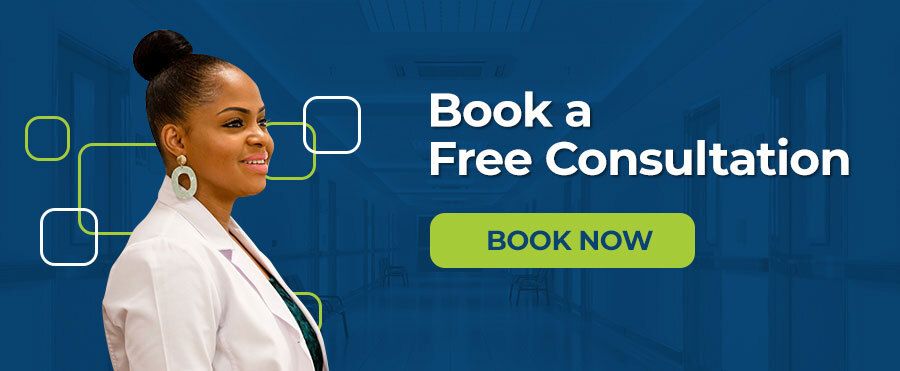In the healthcare industry, providers, professionals and organizations are allowed some flexibility standards may be required while others may be addressable. While there technically is not a specific statute or regulation that required you to check the U.S. Department of Health and Human Services (HHS) Office of the Inspector General's (OIGs) List of Excluded Individuals and Entities (LEIE), recent enforcement actions by the OIG demonstrate you should be.
In this first part of our two part series, we will provide a brief overview of the LEIE and discuss the importance of exclusion list checks.
Who should be checked against the LEIE? How often should exclusion list screening be performed? Are there potential penalties for not checking the OIG exclusion list?
Exclusion List 101 an overview
In a nutshell, the OIG's LEIE (Exclusion List) is where individuals and entities currently excluded from participation in Medicare, Medicaid and all other Federal health care programs, can be found. According to the OIG, exclusions are imposed for a number of reasons:
- Mandatory exclusions conviction of Medicare or Medicaid fraud; patient abuse or neglect; felony convictions for other health care-related fraud, theft, or other financial misconduct; and felony convictions relating to unlawful manufacture, distribution, prescription, or dispensing of controlled substances; among others.
- Permissive exclusions OIG has discretion to exclude individuals and entities on a number of grounds: misdemeanor convictions related to health care fraud; misdemeanor convictions relating to the unlawful manufacture, distribution, prescription, or dispensing of controlled substances; submission of false or fraudulent claims to a Federal health care program; among others.
The exclusion list is updated on a monthly basis, and if an individual or entity has been reinstated, they are removed from the list. Further, the OIG is authorized to impose exclusions under the authority of sections 1128 and 1156 of the Social Security Act.
The LEIE can be accessed in a couple of ways:
- First, the OIG provides an Online Searchable Database where you can enter the name of an individual or entity and determine whether they are currently excluded. If there is a match, the database allows for verification with other identifiers including an
individual's Social Security Number (SSN), Employer Identification Numbers (EIN), Date of Birth (DOB), and others.
- Second, the OIG provides a Downloadable Database where you can download the entire LEIE. The Downloadable Database does not include SSN's or EINs; therefore, if you choose to verify an individual using these identifiers is must be accomplished using the Online Searchable Database.
Recently, OIG released an important notice regarding the Downloadable Database. According to the notice, OIG is transitioning toward offering data in a new file format. The current downloadable files are offered in DBF format and contained within self-extracting/compressed files (EXE and ZIP). OIG will now offer raw data in comma-separated value (CSV) format, which is contained in both TXT and CSV file types. As of February 2016, the DBF, EXE, and ZIP files will be eliminated . This means that in order to effectively check the list on your own you should attempt downloading the CSV-formatted file type of your preference and testing it in your software environment.
Both the Online Searchable Database and the Downloadable Database are updated on a monthly basis. Additionally, these lists are being heavily enforced by a task force that is responsible for checking for excluded individuals (more on this later).

Who Should be checked against the LEIE?
Last year we mentioned that your organization is responsible for not employing or contracting with excluded individuals or entities, whether in a physician practice, a clinic, or in any capacity or setting in which Federal healthcare programs may reimburse for the items or services furnished by those employees or contractors. The same holds true for 2016. If you participate in Medicare, Medicaid or any other Federal health care programs all employees/vendors/subcontractors are required to be checked against the exclusion list.
How often should exclusion list screening be performed?
You should be checking all employees, vendors and subcontractors against the exclusion list prior to hiring or contracting and then recheck monthly thereafter. In a Special Advisory Bulletin on the Effect of Exclusion from Participation in Federal Health Care Programs Issued May 8, 2013, the following emphasizes how often exclusion list screening should be performed:
To avoid potential CMP liability, providers should check the LEIE prior to employing or contracting with persons and periodically check the LEIE to determine the exclusion status of current employees and contractors.
Inspector General Daniel Levinson of the HHS has emphasized the need for monthly checks. He has stated that it is his recommendation and best practice to search the OIG exclusion list monthly because the records are updated monthly.
Are there potential penalties for not checking the OIG exclusion list?
It's not a question of if, but when: if you employ or contract with excluded individuals or entities you will be subject to fines and penalties. Remember the task force responsible for checking excluded individuals mentioned above? The OIG has increased focus on checking for excluded individuals, and make no mistake, if the task force finds that you have employed or contracted with excluded individuals or entities, you could face fines and penalties (42 CFR 1001.1901).
According to the OIG, an excluded person violates the exclusion if the person furnishes to Federal health care program beneficiaries items or services for which Federal health care program payment is sought. In other words, an excluded person who submits a payment to a Federal health care program, or causes such a claim to be submitted, may be subject to a civil monetary penalty (CMP) of $10,000 for each claimed item or service furnished during the period that the person was excluded. In addition, you may be subject to an assessment of up to three times the amount claimed for each item or service, and denial of reinstatement by OIG to Federal health care programs because of an exclusion violation (section 1128A(a)(1)(D) of the Act).
Examples of recent enforcements
In 2015 there were numerous actions by the OIG. Below are just two examples of several enforcement actions that occurred in 2015:
Maryland Cardiology Associates, P.C. (MCA), Maryland, agreed to pay $134,506.47 for allegedly violating the Civil Monetary Penalties Law. OIG alleged that MCA employed an individual that it knew or should have known was excluded from participation in Federal health care programs.
Trinity Mission & Rehab of Farmville, LLC (Trinity Mission), Virginia, agreed to pay $399,573.85 for allegedly violating the Civil Monetary Penalties Law. OIG alleged that Trinity Mission employed an individual that it knew or should have known was excluded from participation in Federal health care programs.
How we can help you with the exclusion list process?
Even though there isn't a specific statute or regulation, the LEIE is public knowledge. Taking the stance of "I didn't know I should be" or "it's not a requirement" will not prevent fines or penalties. Rather, because it is public knowledge your stance should be one of I should know therefore I am prepared by performing checks on a monthly basis.
Depending on the size of your organization, checking the OIG Exclusion List for all employees, vendors and subcontractors could be an arduous process. Because we recognize the burden of checking the online database can be a challenging and potentially costly process for your organization, we offer an affordable monthly exclusion list service. Our OIG Exclusion List service is a tool that ensures your organization is screening all employees, vendors, and subcontractors against the DHHS OIG List of Excluded Individuals and Entities (LEIE) prior to hiring or contracting and monthly thereafter.
Read Part two Here
In the meantime, if you have any questions please do not hesitate to contact one of our professional consultants.

